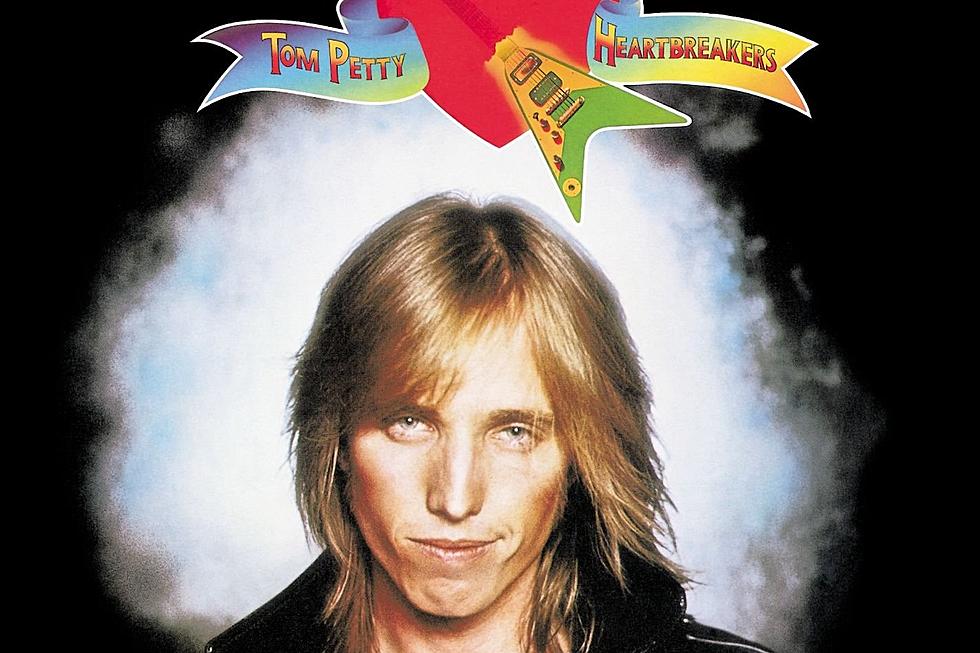
How Tom Petty and the Heartbreakers’ Debut Slowly Built Momentum
If you know anything about rock bands, you know the story about how most groups come to make their first album: Like-minded musicians join forces, they play a ton of gigs for little money, someone starts writing songs, they make a demo, they get noticed and a man in a suit gives them a record deal.
Tom Petty tried to go this route, but it wasn’t with the Heartbreakers. It was as a member of an earlier band, Mudcrutch, which also included guitarist Mike Campbell and keyboardist Benmont Tench. The band out of Gainesville, Fla., landed a deal with Shelter Records in 1974, moved to Hollywood and made a solitary single before imploding.
“But we did the L.A. freak-out,” Tench later told Rolling Stone. “We fought over songs, over having been together too long and we broke up.”
With his ’crutch gone, Petty grudgingly began working on a solo career in 1975 with Shelter, with help from Campbell. The Los Angeles session players didn’t gel with the Florida rockers, leaving Petty discouraged about his future. The singer, songwriter and guitarist saw his fortunes turn when he was asked to play on a friend’s session.
After Mudcrutch’s flame-out, Tench began to pursue a solo career, and to make a demo tape he enlisted a bunch of Florida transplants, including drummer Stan Lynch, bassist Ron Blair, guitarist Campbell and Petty, who was invited to play harmonica.
Tench “really handpicked the Heartbreakers. They were all Gainesville guys who had moved out to L.A., so I was invited to play the harmonica,” Petty told Billboard in 2005. “I went by the Village Recorder in Santa Monica, and I was like, ‘What a band!’ And being the cunning businessman that I am, I said, ‘You know, backing up Benmont’s fine, but there’s no reason you couldn't have me in the band and I have a record deal, so you could circumvent the whole try-to-make-it thing and go in with me,’ and we were off.”
The quintet played together for the first time at that session. They played old Mudcrutch songs. Then they played some new Petty tunes. By the next day, they had formed a band.
The newly Christened Heartbreakers slid into Petty’s record deal (which originally had been Mudcrutch’s deal). Shelter co-owner Denny Cordell produced the group’s debut, which would be titled, simply, Tom Petty and the Heartbreakers.
With roots in Chuck Berry songcraft and Beatles-esque melodies, the band planned to fight “disco trance music,” according to Petty, by way of “the kind of rock that used to come blasting out of the AM radio when every song was a new Creedence [Clearwater Revival] or a new [Rolling] Stones, and all you wanted to was crank it up.” The fivesome went into the studio immediately and cut the entire LP in two weeks.
Listen to Tom Petty and the Heartbreakers' 'Breakdown'
Over the past couple of years, Petty had gathered a crop of songs, including “Breakdown,” “The Wild One, Forever” and “American Girl.” The last one, now a rock classic and one of the Heartbreakers’ most famous songs, was inspired by Bo Diddley, the Byrds and California freeways.
“I was living in an apartment where I was right by the freeway, and the cars would go by – in Encino, near Leon Russell’s house,” Petty recalled in Conversations With Tom Petty. “And I remember thinking that that sounded like the ocean to me. That was my ocean, my Malibu where I heard the waves crash – but it was just the cars going by. I think that must have inspired the lyric.”
But “American Girl” didn’t become an instant hit when the Heartbreakers’ self-titled debut was released on Nov. 9, 1976. In fact, the entire album didn’t gain much notice in the U.S. Petty blamed the record company’s lack of promotion. He also blamed the album cover, which showed Tom wearing a defiant smirk and a leather jacket, for suggesting an association with the exploding punk-rock movement.
“Everybody white, in a band and under the age of 25 was a punk,” said Petty, who made his feelings clear about the genre to the press. “There ain’t no Robin Hoods in rock, man. All that punk shit was just a little too trendy. [Elvis] Costello’s okay. We played with him, but I couldn’t call him Elvis.”
Interestingly, it was the U.K., the home of the Sex Pistols and Costello, which first latched on to Petty and the Heartbreakers. The band opened for Nils Lofgren, and were soon invited back to headline their own shows, all while the singles “Anything That’s Rock ’n’ Roll” and “American Girl” hit the U.K. Top 40.
As the U.S. music industry, and the band’s label, began to appreciate what was going on across the Atlantic, Petty and the boys started to gain traction in their homeland. “Breakdown” had been a flop when it was released in 1976. It became a hit when it was re-released in late 1977, eventually rising to No. 40 on the Billboard chart in 1978.
All the while, the band was allowed to postpone the recording of its sophomore disc, focusing on a rampant touring schedule that continued to hone the group’s live prowess. Their debut went gold in the U.S. while climbing the charts around the world. The Heartbreakers had arrived.
Tom Petty Albums Ranked
Gallery Credit: Bryan Wawzenek
Remembering Tom Petty
More From Eagle 106.3










